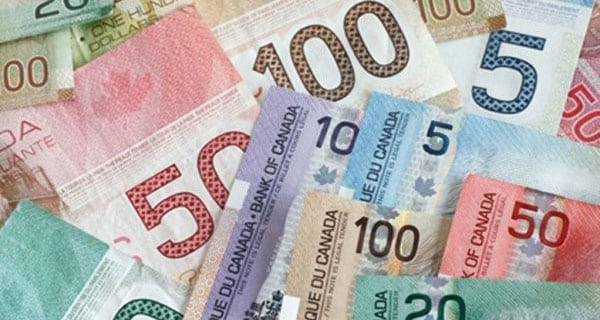 Canadians have expressed relief that U.S. President Donald Trump only wants to “tweak” trade relations with Canada and not rewrite our portion of the North American Free Trade Agreement (NAFTA).
Canadians have expressed relief that U.S. President Donald Trump only wants to “tweak” trade relations with Canada and not rewrite our portion of the North American Free Trade Agreement (NAFTA).
This is partly pragmatic, since trade between the U.S. and Canada is huge, worth upwards of $540 billion in 2015.
In fact, it’s clear that the Canada-U.S. portion of NAFTA is largely what Trump describes as “free and fair” trade, as opposed to the presumably free and unfair trade that takes place between the U.S. and Mexico or China.
So what is it about Canada that makes our trade seem fair from Trump’s perspective?
Unlike China and Mexico, Canada doesn’t have a huge wage gap with American workers. Behind the diplomatic niceties of free-trade rhetoric is a dark and growing fear, expressed in blog posts like the following: “You cannot have ‘free trade’ with slave wage nations unless you want your populace to make slave wages,” and “trade agreements are just wealth transfer mechanisms taking our (U.S.) wealth and redistributing it to lesser nations.”
Canada is a developed economy with relatively high wage structure. The wage equality between the U.S. and Canada is rooted in our historical support for workers’ rights. Over the past century, the U.S. and Canada have encouraged the development of union movements and advanced the rights (and wages) for workers to unparalleled heights.
So the structure of our capitalist systems is similar. Differences between our economies are presumed to be in entrepreneurial skills, in the presence or absence of natural resources, or in the capacity to innovate.
None of these are considered unfair, so Canada-U.S. trade exists on a different and far less threatening basis than U.S. trade with nations like China and Mexico, where workers’ wages are low and their rights are virtually non-existent.
Nevertheless, difficulties remain, irritating disputes that could and should be resolvable.
The longest and most troubling area of dispute is softwood lumber. The United States is Canada’s largest export market for lumber. Related trade disputes resurface at regular intervals.
U.S. softwood lumber producers regularly complain of unfair trade practices by Canadian producers. Crown ownership of forests in Canada is a problem – U.S. producers suspect that Canadian stumpage fees (government pricing for access to these forests) simply result in backhanded subsidies to Canadian producers.
In 2006, the two nations agreed to a nine-year standoff. The U.S. refunded nearly $5 billion in duties it had collected from Canadians. It’s no surprise that this change in attitude corresponded with a rise in the value of the Canadian dollar, which approached parity with the U.S. dollar.
And there are other areas of dispute.
Canada has objected to protectionist measures for U.S. beef producers and country of origin labelling (COOL) of meat products in the U.S.
American authorities regularly close the border to Canadian beef in response to issues like mad-cow scares. Canadians complain that these closures are longer than necessary and discriminate against Canadian beef.
Canadian producers also believe that in North America’s highly integrated beef industry, defining a truly Canadian cut of beef is almost impossible. The COOL issue should have been resolved (but wasn’t) when the World Trade Organization issued a final ruling that U.S. mandatory COOL discriminates against Canadian imports.
At the heart of Canada-U.S. trade problems is the wildly fluctuating Canadian dollar. When our dollar traded at $0.63 more than a decade ago, trade disputes were chronic. When the two dollars trade on relative par, commodity disputes disappear.
So why don’t we resolve Canada-U.S. trade disputes by returning to fixed exchange rates for the dollars?
We could establish the world’s largest and most efficient free-trade zone by removing the power to alter dollar exchange rates from Wall Street’s foreign exchange traders.
It would require some new thinking in Ottawa and Washington, and involve some tough negotiating to establish a reasonable exchange rate. But these negotiations would be much simpler and cheaper than redrafting NAFTA or enduring endless decades of trade disputes.
Now that would be a trade deal tweak worth making.
Robert McGarvey is an economic historian and former managing director of Merlin Consulting, a London, U.K.-based consulting firm. Robert’s most recent book is Futuromics: A Guide to Thriving in Capitalism’s Third Wave.
Robert is a Troy Media Thought Leader. Why aren’t you?
The views, opinions and positions expressed by columnists and contributors are the author’s alone. They do not inherently or expressly reflect the views, opinions and/or positions of our publication.
